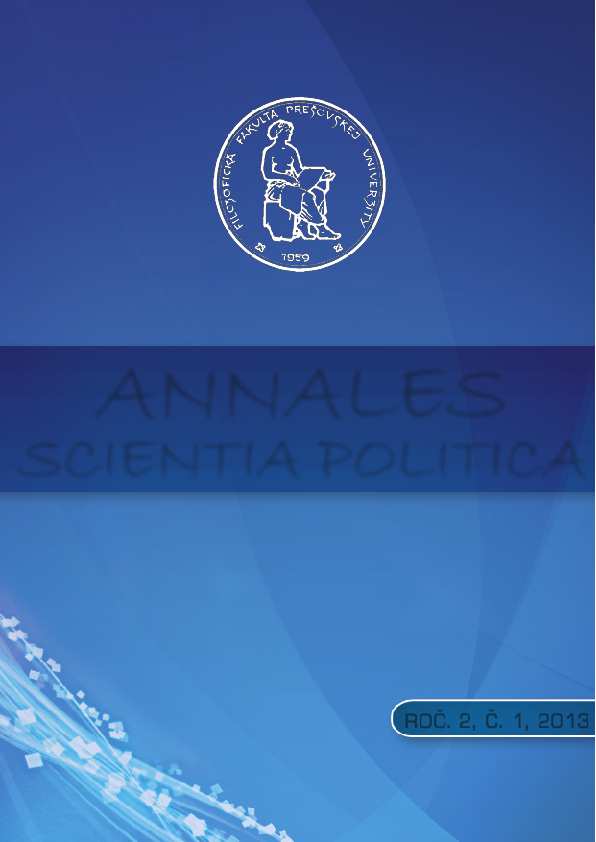
We kindly inform you that, as long as the subject affiliation of our 300.000+ articles is in progress, you might get unsufficient or no results on your third level or second level search. In this case, please broaden your search criteria.

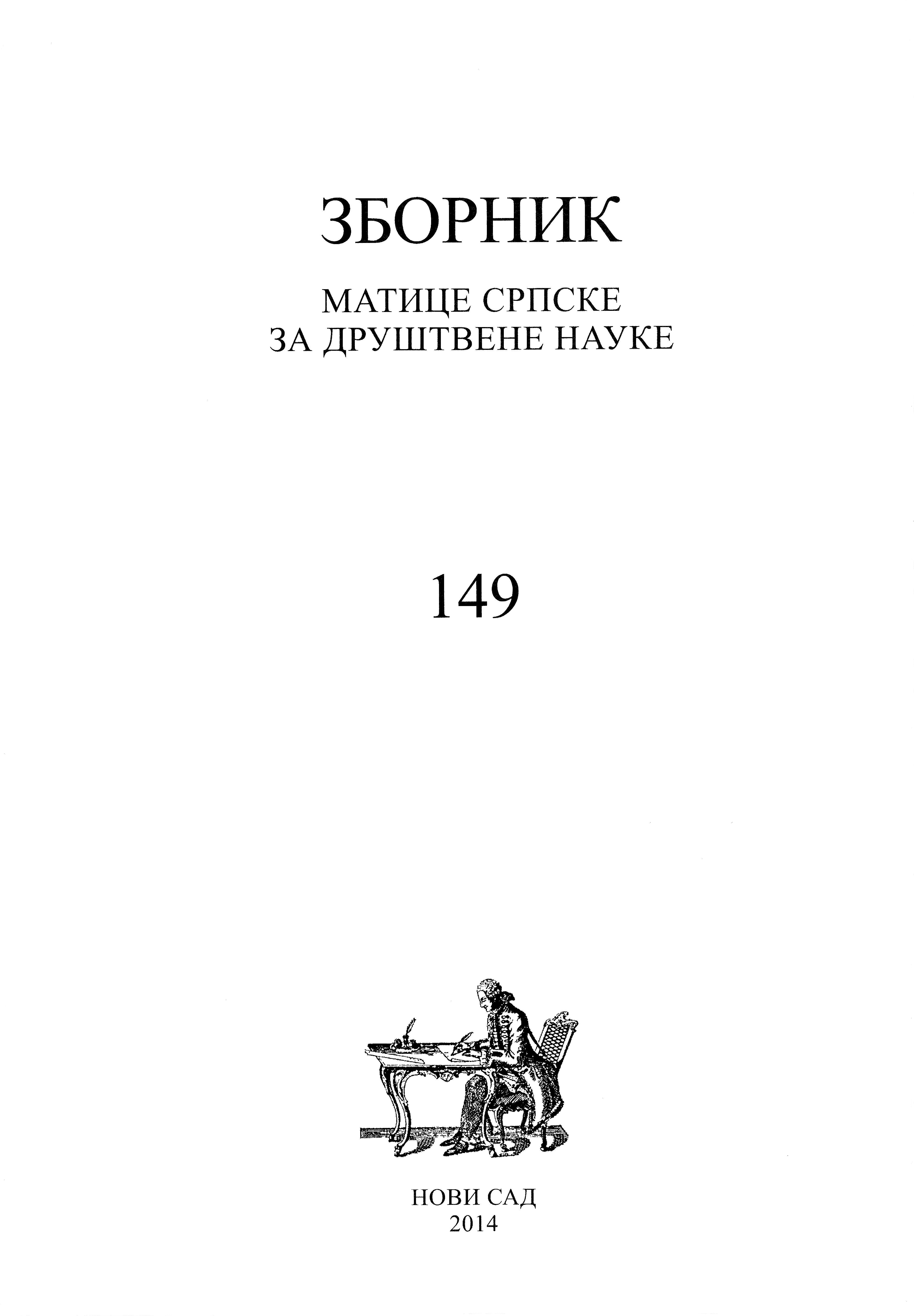
Globalization is one of the key concepts of modern social science. Although it almost exists for as long as human society, the scientific interest for globalization is the largest in recent decades. Different theoretical approaches to the phenomenon of globalization have led to different perceptions of its character and influence on contemporary social, economic and political phenomena, processes and relations. In this article the author will present the most important theoretical approaches to globalization and emphasize the theoretical controversies about globalization and its discontents. At the same time, the author will identify the theoretical and epistemological distinction between globalization and globalism.
More...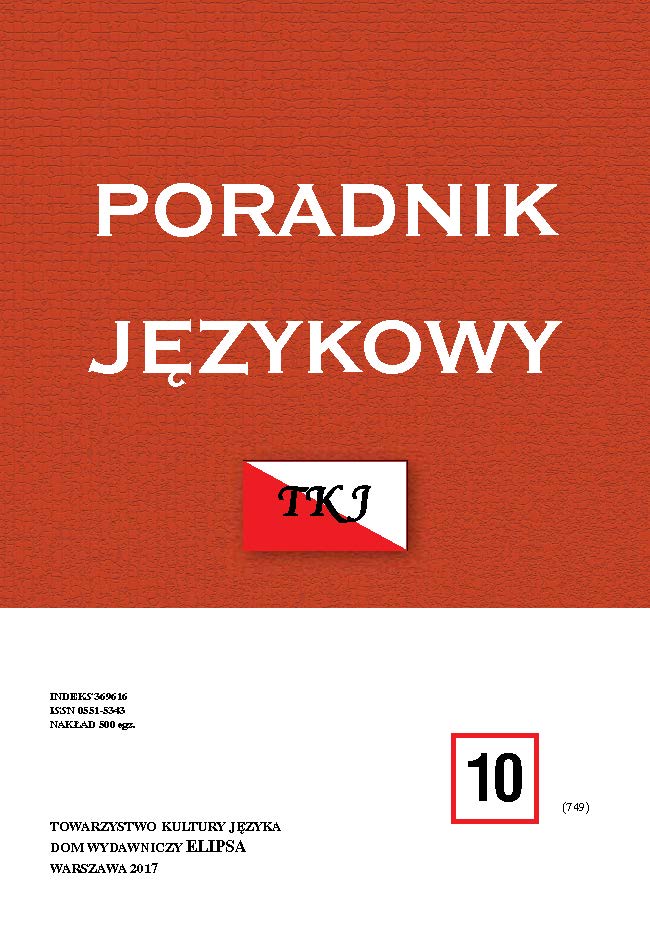
The aim of this paper is to discuss the problems connected with identity and tradition in the local and global aspect. The text is concerned with, firstly, how these two spheres interrelate at linguistic, cultural and mental levels in the rural and urban reality nowadays and, secondly, how to protect and promote what is local and regional in the globalised world. The relationship between modern globalisation tendencies and culturallinguistic legacy of a region boils down to the search for an answer to whether globalisation threatens the traditional system of values and the local identity of “little homeland” or rather upholds it and gives it a broader perspective for development as well as points to its didactic and integrative function. This is ensured by noticing a link between the local world and the global one – namely, tradition.
More...
The focus of this document will be on the influence the spectacle-oriented content in media has on the program, and on the program orientation and program outline. The question arises as to how big is the the share of spectacularism in the electronic or printed media. The author’s intention is to perceive the scale of the presence of spectacularism in program orientation in media houses through market analysis of investments in marketing made by large corporations. The idea is to keep the record of the spectacle-oriented program and its long-term broadcasting frequency through ratings. Aware of the fact that the broad picture of media orientation towards the spectacle can be grasped comprehensively only through a complete insight into the presentation of all media (electronic and printed), the paper will concentrate around comparing results from a geographical and age structure of consumers of the media content. Research carried out by agencies irrefutably show the steep vertical growth of spectacle-oriented media content. Technicism in culture fabricates quasi cultural goods and transforms them into an effective instrument of power that dominates entertainment sector which replaced its basic postulates: meaningfulness and informativity. The aim of the document is to show that the wide spread of imported content from the West, such as reality shows, game shows without a point, and undifferentiated program outlines which all pander to poor taste of consumers, is inversely proportional to its absurdity by showing high ratings and thus dominates the media sky.
More...
This study investigates the impact of globalization on non-oil export performance in Nigeria.Using time series data, the paper employed the Auto regressive Distributed Lag (ARDL) approach to analyse the relationship between globalization and non-oil export performance within the periods of 1970 to 2014.The results revealed that there is a long-run relationship between globalization and non-oil export performance in Nigeria. The parameter estimates showed that globalization, official development assistance,investment and exchange rate have positive impact on non-oil sector export in Nigeria. In addition, gross domestic product and foreign direct investment have negative impact on non-oil sector export performance in Nigeria. The study concludes that the impact of globalization on non-oil export performance is a long-run phenomenon. Thus, the government should adopt and implement trade policies that are capable of sustaining non-oil sector growth in Nigeria.
More...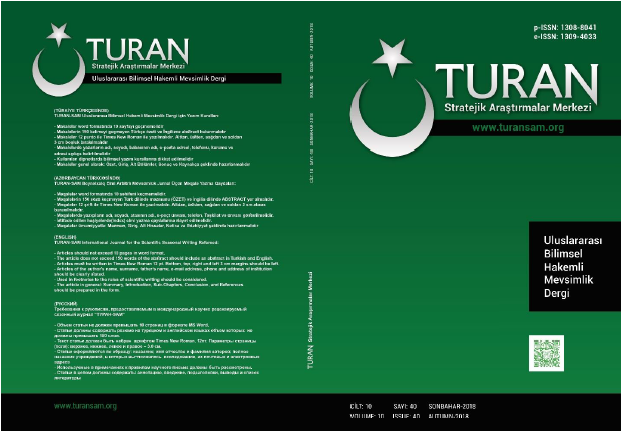
The concept of globalization is one of the most discussed concepts today. In addition, the process of globalization is multidimensional and so complex. Because the globalization process can cause both positive and negative developments. Therefore, it is possible to find both positive and negative comments about the globalization process in the literature. In summary and globalization in general, the world is becoming smaller due to increasing day by day. Therefore, the concept of globalization, which has influenced societies, needs to be well analyzed. Therefore, in this study, what globalization means in general and how it affects societies will be discussed. We will also focus on leisure and consumer society in order to better understand globalization. This is because globalization shows itself on these concepts in a concrete way.
More...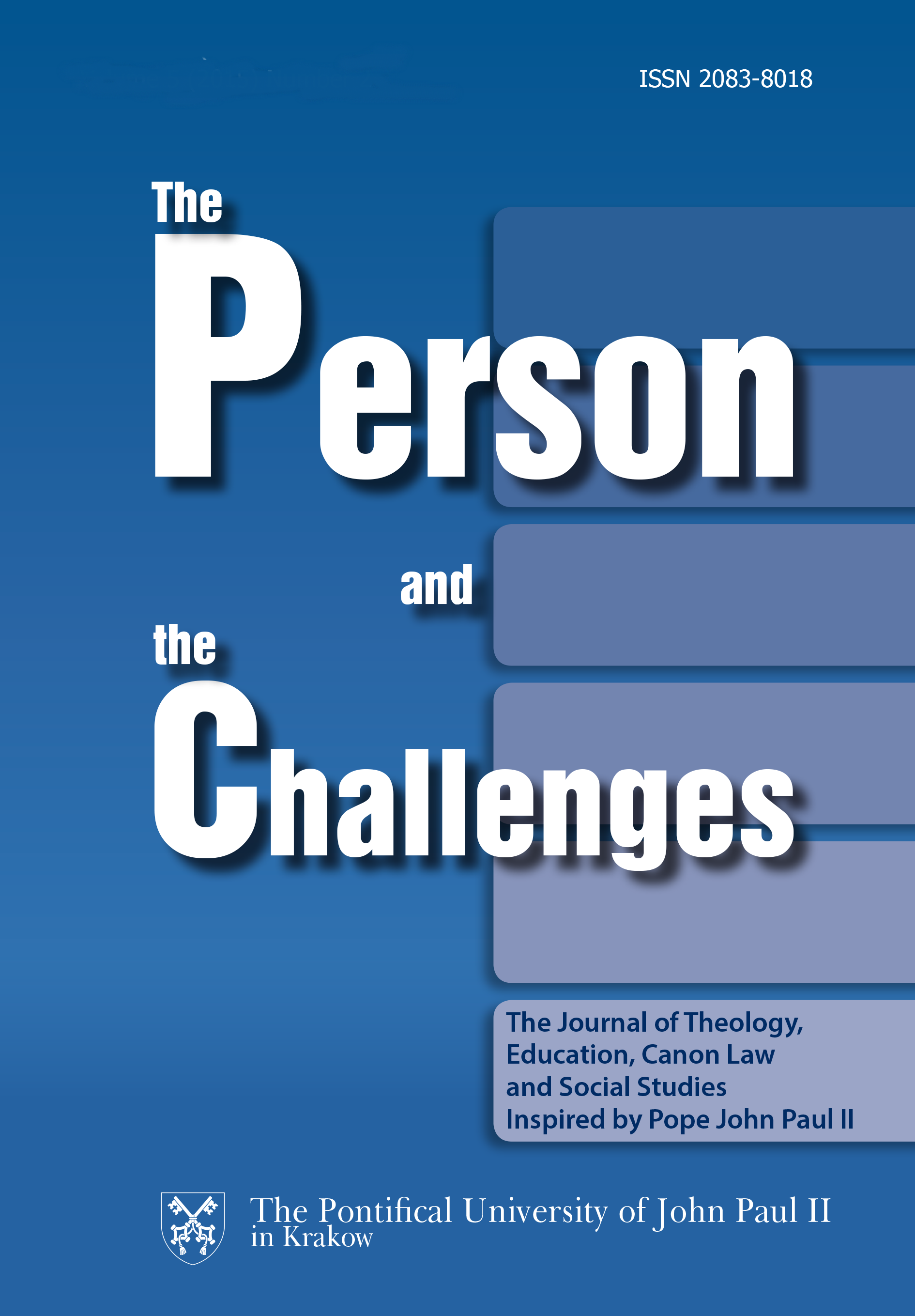
This article examines the processes of transformation of European societies in XXI century, taking into consideration especially factors of post-modernity, globalisation and strong social changes. Post-modernity affects all societies, but particularly those new societies in transition. Authors take the broad concept of ‘post-modernity’ as being important for all societies that have experienced transformation in their political, social, cultural, economic, educational and religious spheres following a political shift from socialist to democratic government. The processes of social transformation affect people living in them strongly, in particular in their identity and relationships.
More...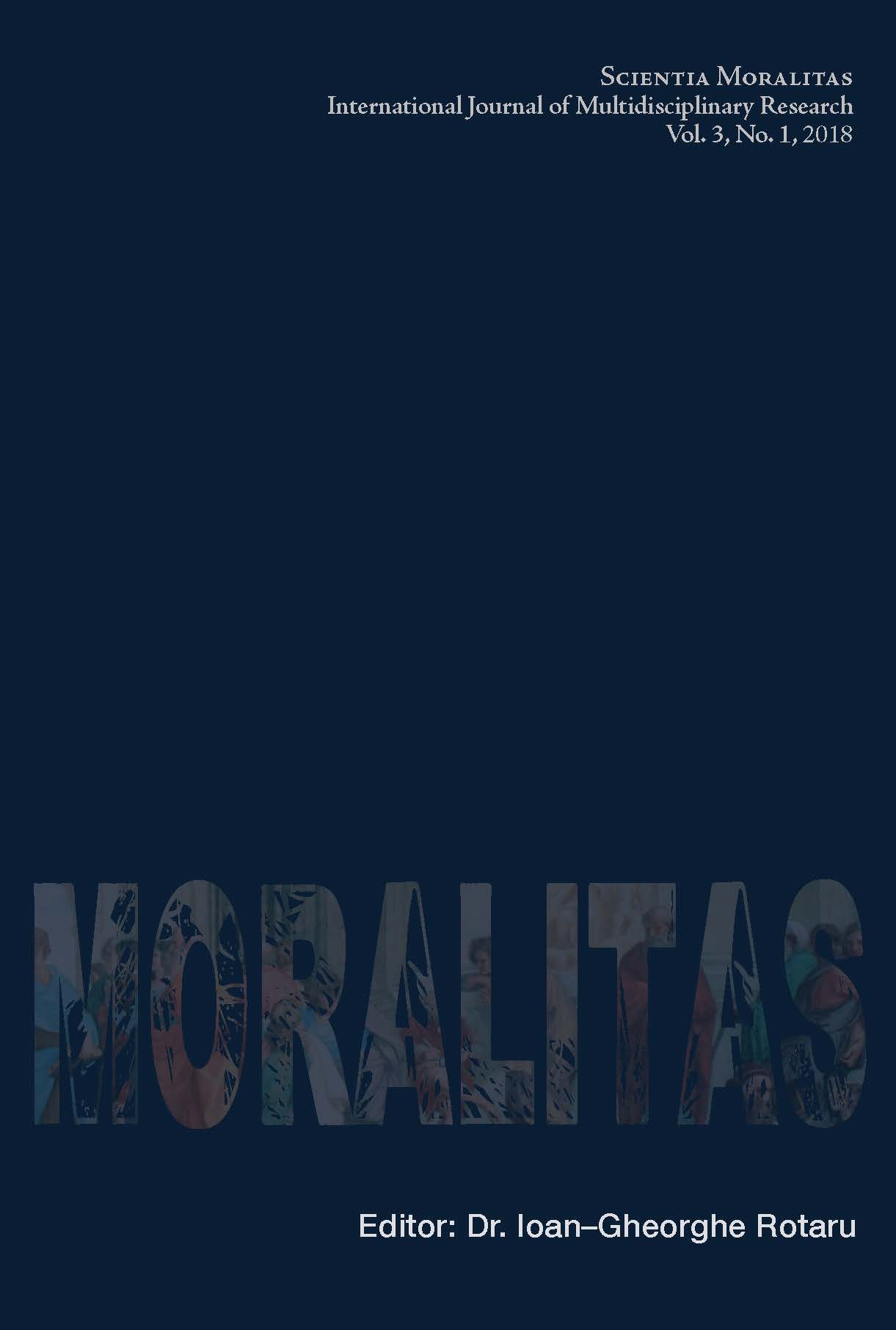
With the increasing urbanization and migration processes in European cities, ethno-political processes have intensified, and cities have become the central place of localization of intercultural contacts. European cities are the objects of multiculturalism policy, developing and supporting ethno-cultural diversity and tolerance. Cities reflect simultaneous trends of globalization and localization. Because of deepening of the processes of globalization, the role of local areas and cultures increases. The modern European metropolis is looking for ways to coordinate the cultures and values of different civilizations. Cities perform a cultural function, enabling cultures to survive. At the local level, cities create mechanisms for involving ethnic communities in social life, and the interests of communities are observed. European political institutions create action programs for the implementation of these mechanisms. The policy of multiculturalism in the metropolis is the search for ways of coordinating the cultures and values of various civilizations.
More...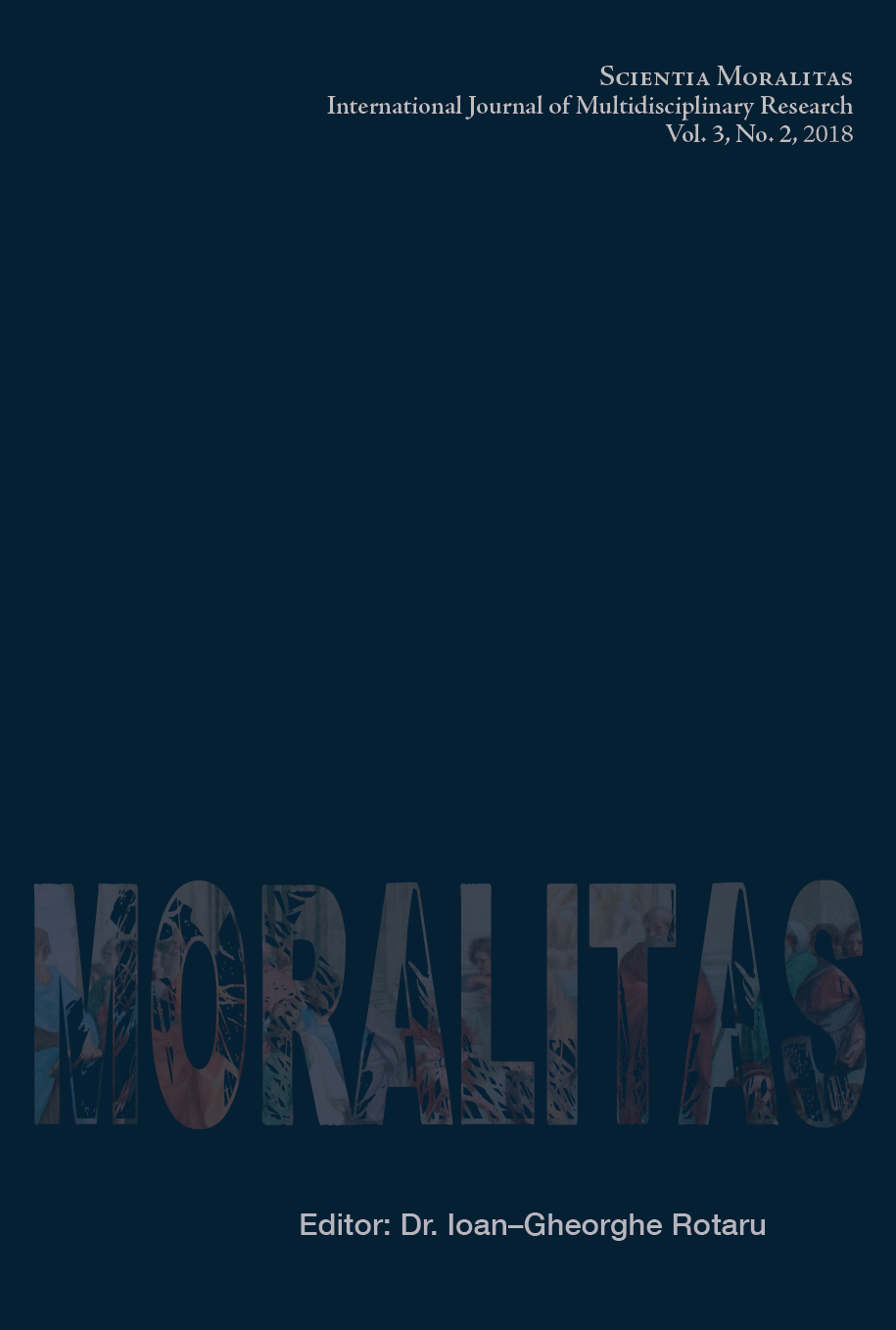
Given that each generation brings new elements and values different from those before it, the style and forms of life are constantly changing and the known traditional models have come to be considered obsolete. In such a society, man has to face an avalanche of information, habits, beliefs, and even religions. Cultures, characteristic of peoples or geographical areas, have become increasingly intertwined, coexisting in the same society, and exerting a particular pressure on the formation of the individual. The phenomenon of globalization has come to have a growing influence on culture. On the one hand, one can see a tendency of fragmegration of culture, and on the other hand an attempt to integrate culture into a wider space. This integration does not involve a cultural leveling. This article emphasizes both the influence of globalization on the fragmegration of culture and the need to change the understanding of culture in relation to previous generations. A proper understanding of globalization and culture gives the world the opportunity to get out of the deepest crisis they are in.
More...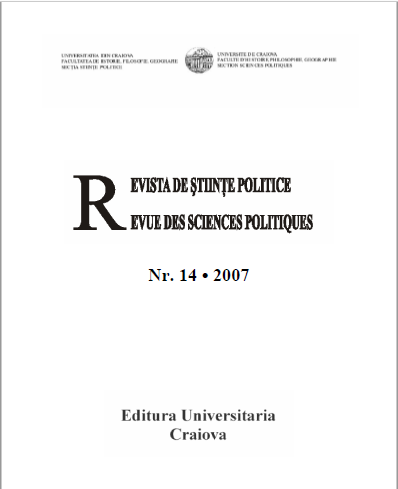
La nouvelle paradigme des relations internationales, l'apparition et la prolifération des nouveaux acteurs internationaux, l'accélération du progrès économique et l'abolition des obstacles dans le déroulement des mécanismes économiques mondiaux, l'existence active des ONG et des OIG ont crée ce qu'on peut nommer maintenant "la conscience globale".
More...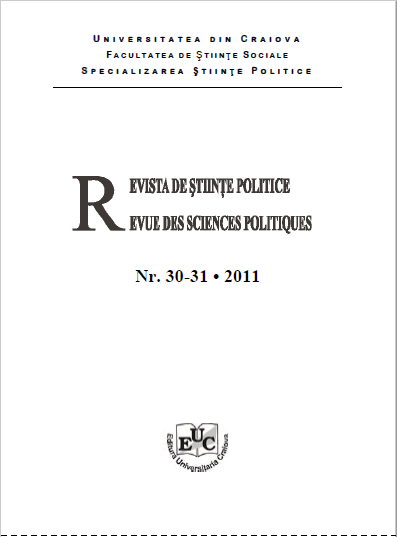
This paper tries to demonstrate that concurrently with corporation globalization there are fundamental changes to its economic and social “comportment”/behaviour. If our perception will be tributary to the old image of corporation related to a certain territory, relatively easy to control and interested in the social environment where it evolves, then it is possible that reality will take us completely by surprise. The economic destiny of the society was directly connected to the profitability of its corporations and vice versa but today this double dependence has become more and more uncertain.
More...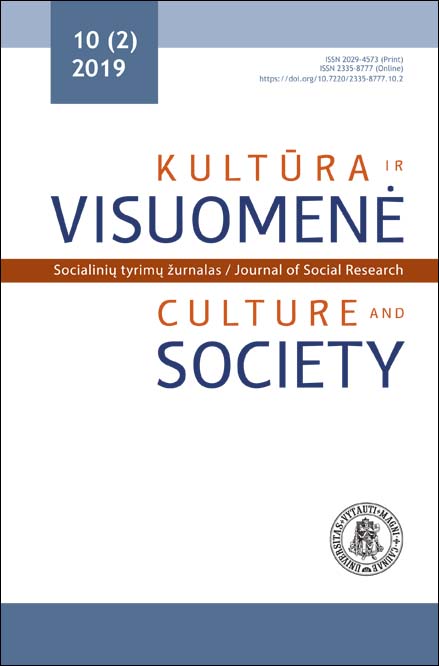
In my paper, I argue that the patterns of globalization should be interpreted as a functionally enclosed structurally linked locality system whose prevailing environment is represented by the global flow of symbols. My research results suggest that authenticity and algorithmization are not rival concepts of cultural reproduction. On the contrary, different localities are able to ride the waves of globalization that combine complementary strategies of algorithmization and authenticity in a standardized form. Thus, these localities adapt to the challenges of globalization that produce and combine standardized-algorithmic and standardized-authentic patterns.
More...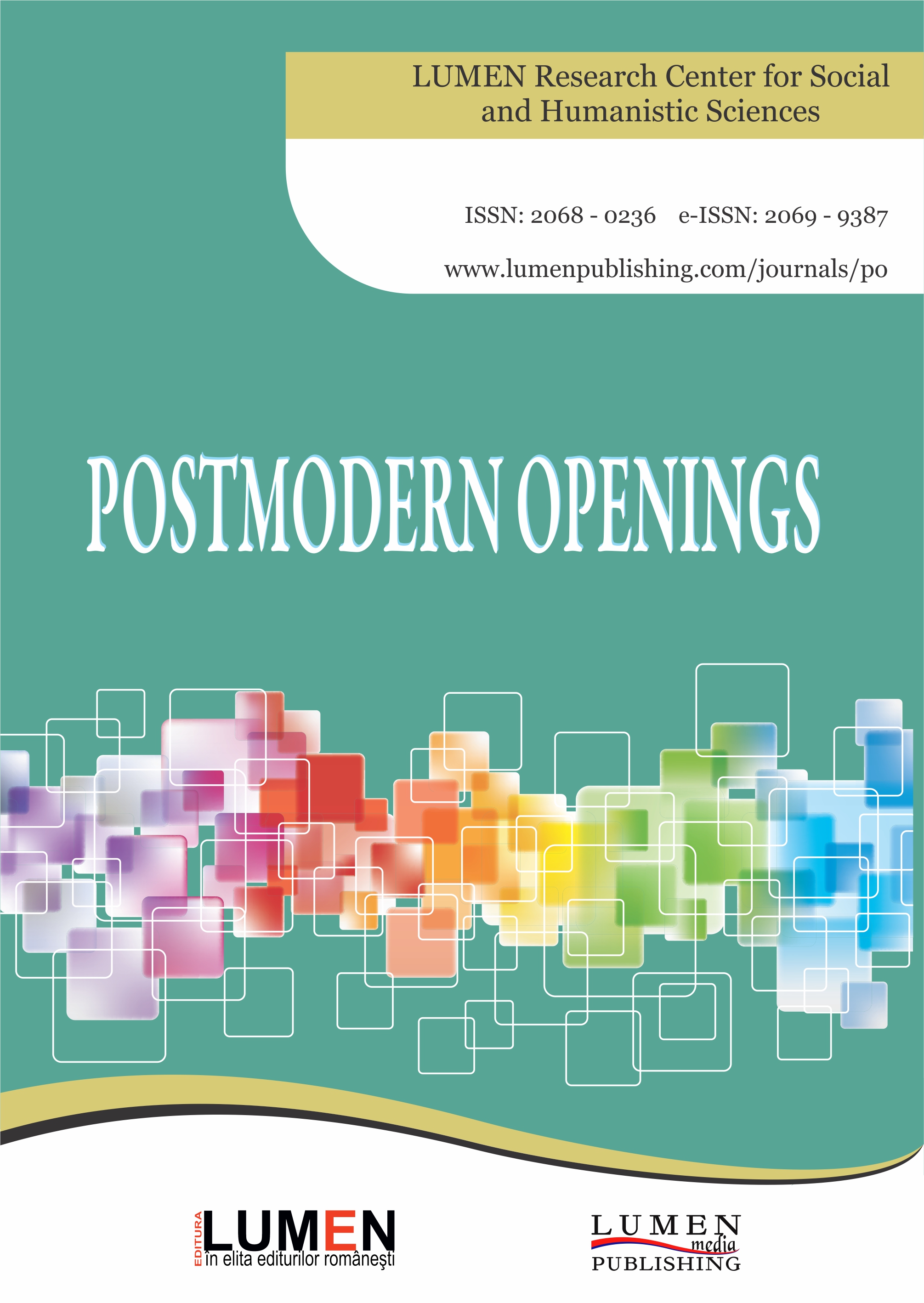
In the postmodern era, the fundamental foundations of the human soul swayed. In accordance with this, in scientific approaches, there is a complex and controversial process of reassessment of the axiological orientations of modern man. Despite the painful collisions of this process, in the conditions of postmodernity, a person of a creative warehouse gets an unprecedented freedom so far, based on the constructive basis of spirituality, thanks to which a person acquires the ability to distance himself from society and independently critically comprehend all aspects and spheres of his life. The intensification of the search for the meaning of life on an individual-personal level is a characteristic sign of the development of society not only in the West, but also in societies with the preservation of traditional specifics. The effectiveness of the search for the meaning of life in the real world is directly dependent on the development by people of the new islands of freedom, life forms and directions of creativity, corresponding to the realities of the break of millennia. The purpose of the article is to identify the main problems of modern society, such as: globalization challenges, problems of attitude to the world, the environmental perception of the world in particular, and the problems of educating spirituality as a spiritual attitude to the world and to a holistic personality.
More...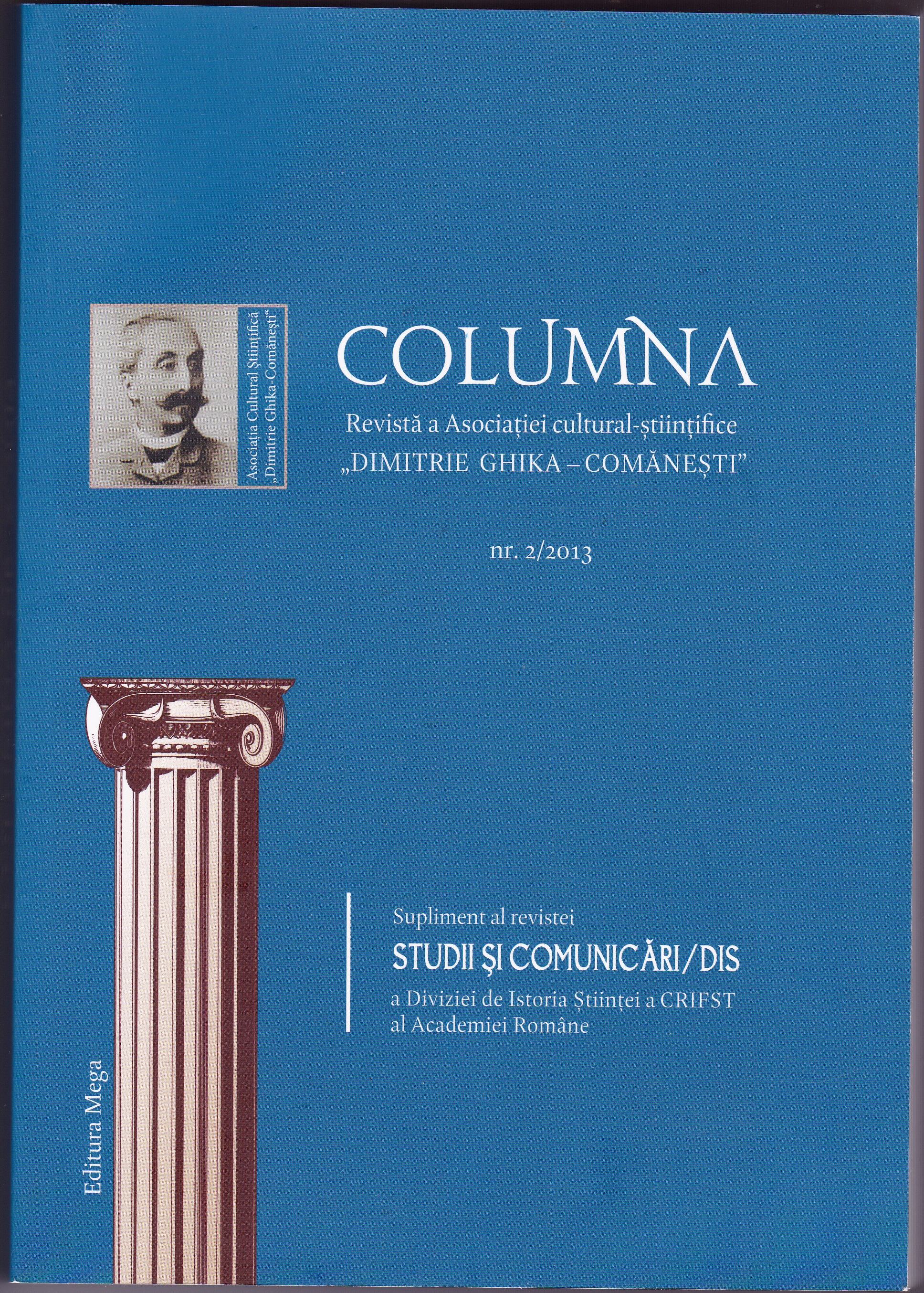
Globalization is a very used term which can assign many meanings. Globalization is a relatively recent term that distinguishes the present from what happened 50 years ago or even 25 years ago.International capital movements accelerated in the early ‘80s when Ronald Reagan and Margaret Thatcher, financial markets become truly global in the early ‘90s, after the collapse of the Soviet empire. Following a study made by the Belgian Professor Jan Deboel from The University of Political and Social Sciences, it was demonstrated that people consciously and subconsciously trying to behave as the name suggests, and of course, their Christian name. If it was a time when the new/born baby was baptized with the Christian name of his godparents, nowadays the parents are the ones who decide the Christian name of their baby. It’s a tough choice, since the name will carry throughout life and therefore must be nice, must mean something and must be „fashionable”.
More...
More than twenty-five years ago I published a book: Farewell to the differences, translated into Romanian. In this book there was a chapter devoted to a commentary on Husserl's 1935 text on the Crisis of European consciousness. I think that since the factors of standardization, in particular economics, militaries, scientific and cultural have strengthened, and today offering the spectacle of a planet where the differences become more and more microscopic, which does not mean that conflicts are less acute. As the German historian Nolte wrote about the Second World War, it was the largest Weltburgerkrieg (World Civil War) we may think that we are currently faced with the same phenomenon extended to all the peoples of the planets
More...
Analyzing a set of punctual cases from the world modern history we highlight that states behave differently according to their international status on a certain security relationship. We also noticed a gap in the theory of security studies: the lack of a proper definition of security status of states. Therefore this article aims to ring a bell for the need to clarify a few overused but theoretically neglected concepts of the security studies. From here we aim to emphasis the importance of a clearer definition of concepts such as security producer and security consumer trying to identify theoretical criteria that allow a proper conceptual delimitation.
More...
The post-Second World War international order was based on the idea of order among states, as embedded in the United Nations’ system. This principle shaped state behaviour with respect to the sanctity of sovereignty and the rule of non-intervention in states’ internal affairs. However, the promotion of human rights at home and abroad ran parallel, as secondary principle of the UN system, and centred on justice within states. For a long time, order among states (meaning absence of inter-state armed conflict and non-intervention in state’s domestic affairs) and promotion of justice within states (meaning the need to promote human rights as global responsibility, even if this infringes upon state sovereignty) were perceived as mutually exclusive.This paper tackles solidarism and humanitarian intervention and analyses the core arguments of the solidarist discourse. By revisiting the concept of state sovereignty, solidarists try to reconcile the tension between order among states and justice within states. Building on moral and legal arguments, solidarism tries to shape state behaviour in international politics by drawing attention to the global responsibility to protect. Methodologically, the underlying research question is: what are the main pillars of the solidarist discourse with respect to humanitarian intervention?
More...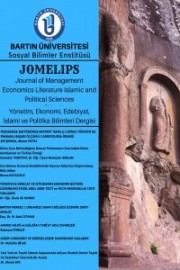
Globalization, which has found its meaning in Turkish as "küreselleşme", has been one of the most important topics of all areas in humanities and in national as well as international politics from the 1980's onwards. The issue has remained prolific in terms of theoretical and practical multidisciplinary implications for disciplines such as economy and culture to law and politics, due to its multi- dimensionality and interrelatedness; and the state of the world has been opened to discussion in regards to the concept of the world as a “Global Village”, a term coined by McLuhan in the 1960’s. Scientists and the political elite who have explored the matter from the perspective of their own location, prioritized issues and conjunctural dwellings have created, and are still continuing to create a wide range of literature on the matter. Kadir Cangızbay is an unusual sociologist/scholar, who speaks out his topics - we will try to show some of them below - in a very different and striking style. He discusses and analyzes the phenomenon of globalization in a unique manner, arguing -of course, as a scientist informed by other approaches- that if globalization exists, so does an enforcement to ‘make global’ and this is imposed by "imperialist / capitalist forces" in a terrorizing manner, onto societies that are deemed as the “other”. In this article, we will try to examine Cangızbay’s thoughts on ‘globalization’, as he calls it, after addressing his relationship with Gurwitch and Saint Simon, which are his two main source d'alimentation (source of alimentation), and then dwell on some of his ideas on fundamental topics in order to better understand his discussion and approach.
More...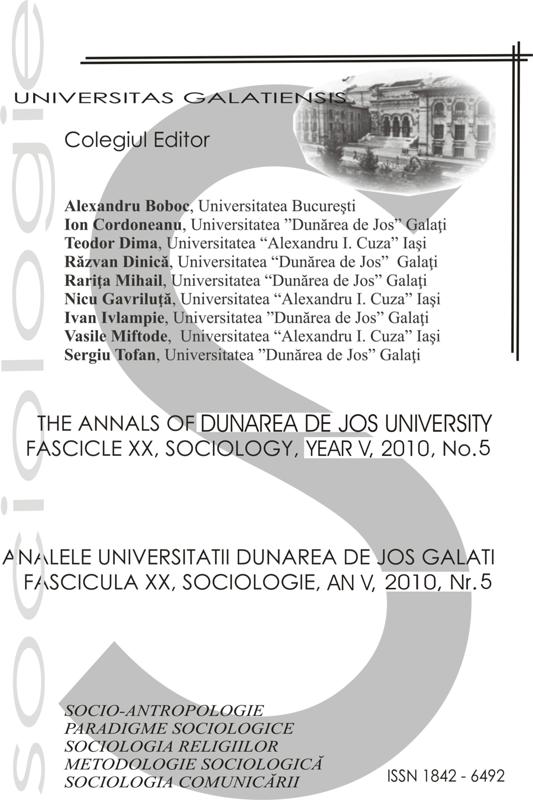
Romania is still trapped in a medieval class relationship mentality, the inequalities present in the social structure offering an improper base for the development of a true democracy. Romania can very well be a case study for the negative social implications of a democratic form of government. The challenge we face as a result of the globalization process can be summarized as: can we, as a nation, accept a thorough cultural shift, with threats to alter the very things we regard as forming our national identity, in order to achieve economic success and become part of the emergent global community? Romania’s economy achievements are ultimately a cultural choice, which involve abandoning part of its identity. Society’s work education requires attaching social value to labour, finding its proper place in the collective value’s system and attaching respect on the part of the society towards its working citizens. The consumer society, one of the virtues of progress, is easily replaced by a sentiment of revolt when it becomes inaccessible to large parts of the population, the fault for this state of affairs being projected on the social system. Without „something different” some Romanians will look to the past, hoping that the spectre of communism will bring them peace of mind. Likewise, most Romanians will not board the buses taking them to demonstrate, but those that leave the country.
More...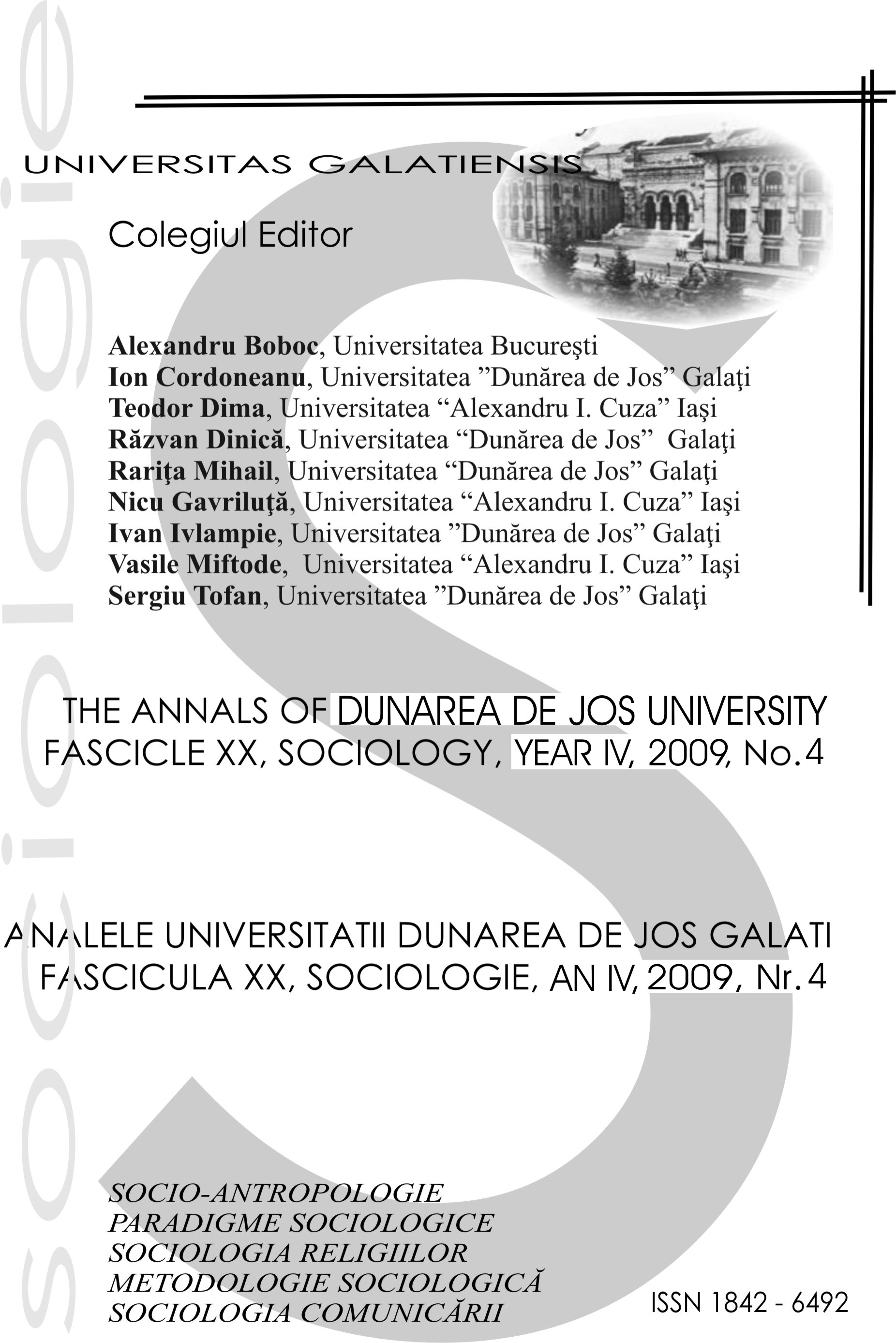
Romania’s perspectives of integration into the democratic world family grew considerably after December 1989. Consecutive “failed” privatizations led to the aggravation of poverty and increased the emigration of the active population in search of a job. Grave assaults upon the incipient Romanian democracy resulted in continuous delays in the process of integration in to NATO and EU. In the same time, the assimilation of advanced technology synchronised the young generation with the evolution of the global world, but the education level witnessed a constant downfall. These are just a few factors which the author stresses as fundamental in the Romanian transition towards a market economy.
More...